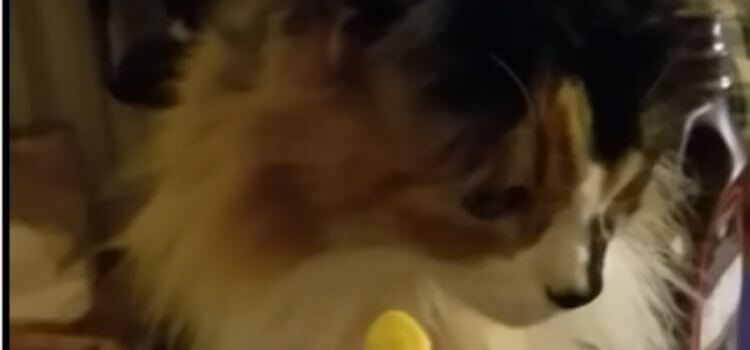As an Amazon Associate I earn from qualifying purchases.
Introduction
When it comes to our furry cat companions, their dietary needs are a significant concern for any responsible cat owner. Cats are known for their particular eating habits, and it’s important to ensure that what they consume is safe and nutritious.

One common question that often arises is whether cats can eat goldfish crackers. In this article, we will delve into the topic, exploring the potential risks and benefits of feeding goldfish crackers to your cat.
Understanding Feline Dietary Requirements
Before we can address whether cats can eat goldfish crackers, it’s crucial to understand the dietary requirements of these enigmatic creatures. Cats are obligate carnivores, which means their bodies require essential nutrients that are primarily found in animal-based proteins. These nutrients include taurine, arachidonic acid, and certain vitamins.
Are Goldfish Crackers Safe for Cats?
Goldfish crackers are a favored snack among humans, but can they be safely shared with our feline friends? The short answer is no. Goldfish crackers are not designed with feline dietary needs in mind. These crackers are typically high in carbohydrates, sodium, and artificial additives, which are not suitable for a cat’s digestive system.
Potential Risks of Feeding Goldfish Crackers to Cats
Feeding goldfish crackers to your cat can pose several risks
- Cats have sensitive digestive methods, and foods high in carbohydrates can lead to upset stomachs, diarrhea, or vomiting.
- Cats require a diet rich in animal-based proteins. Feeding them foods that lack essential nutrients can lead to nutritional imbalances and health issues over time.
- Goldfish crackers are calorie-dense and lack the necessary nutrients for cats. Regular consumption can contribute to obesity, a common health problem among domesticated cats.
Understanding Cat Behavior and Preferences
Why Do Cats Show Interest in Human Foods?
Cats may show curiosity about human foods due to their natural instincts. Their inquisitive nature leads them to investigate new smells and textures. However, just because a cat is interested in something doesn’t mean it’s safe for them to consume.
What Can Cats Eat Instead?
If you’re looking to treat your cat, there are several safe and healthy alternatives
- Lean Meat: Small portions of cooked, lean meats like chicken or turkey can provide a protein-rich treat for your cat.
- Catnip: Many cats enjoy the results of catnip, which can be given as a treat or sprinkled on scratching posts.
- Commercial Cat Treats: There are specially formulated cat treats available in pet stores that are designed to meet feline dietary needs.
Can cats eat goldfish crackers?
It’s important to note that Goldfish crackers, while a popular snack among humans are not suitable for cats. Cats have specific dietary requirements, and their digestive systems are not designed to process many human foods, including crackers. Feeding Goldfish crackers to your cat can lead to digestive issues or even pose choking hazards. To ensure your feline friend’s health and well-being, it’s best to stick to a balanced and appropriate cat diet consisting of high-quality cat food. If you have concerns about your cat’s nutrition or dietary preferences, consult your veterinarian for guidance on providing the best diet for your furry companion.
Conclusion
While the idea of sharing your snacks with your furry companion might seem appealing, it’s important to prioritize their health and dietary needs. Goldfish crackers, with their high carbohydrate content and lack of essential nutrients, are not suitable for cats. To keep your cat happy and healthy, opt for treats that are specifically designed for feline consumption.
FAQs (Frequently Asked Questions)
It’s best to avoid giving your cat goldfish crackers. Cats have unique dietary needs that are better met through specially formulated cat foods and treats.
While some human foods can be given in moderation, it’s recommended to stick to foods designed for cats. Lean meats and commercial cat treats are better alternatives.
If it was a small amount, monitor your cat for any signs of digestive upset. If you notice any unusual behavior or symptoms, consult your veterinarian.
Crackers, in general, are not ideal for cats due to their carbohydrate content. It’s best to provide treats that are specifically formulated for feline consumption.
Your veterinarian can provide valuable information about cat nutrition and recommend suitable foods and treats for your cat’s health and well-being.
Amazon and the Amazon logo are trademarks of Amazon.com, Inc, or its affiliates.